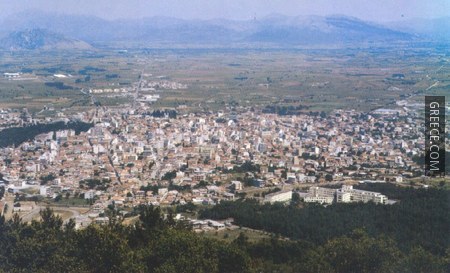General Information on Arkadia
Tripoli is a city in the central part of the Peloponnese and the capital of the prefecture of Arcadia. Built in the centre of a wooded plateau, Tripoli is one of the most important agricultural, commercial and transportation hubs in the Peloponnese. The city is a place of natural contrasts. Due to its position, it can satisfy even the most demanding visitors, as it offers enchanting landscapes and resorts combined with mountain and sea.
Tripoli itself is not very interesting. It has some impressive neoclassical buildings and Byzantine churches, but the architectural anarchy that characterizes most of Greek cities is also present here. However, Tripoli is a major transport hub for the Peloponnese.
History of Arkadia
Tripoli was built during modern times. The history of the town can be traced no further back than the 15th century, when it was known as Tripolitsa or Dropolitsa. It developed very slowly during the early years of Turkish rule, growing at a more rapid pace during the brief period of Venetian administration (1685-1715), when it became a centre of commerce due to its geographical position. Tripolitsa acquired further political, and later economic, importance when in 1718 the Turkish pasha of the Peloponnese moved his headquarters here. In 1785-1790, after the Orloff revolt of 1770, the Turks fortified the city and turned it into their main military base. Among the important early successes of the Greek Revolution was the capture of Tripolitsa by a revolutionary troop led by Theodoros Kolokotronis. The Muslim population of the city, consisting of Turks and Albanians, was massacred, a total of 30,000 people. When Ibrahim Pasha recaptured Tripolitsa in 1825, he in turn massacred the Christian population and burned the city. Tripolitsa burned for nine days and nearly all of its buildings, apart from public fountains, were destroyed.
How to Reach Arkadia
Bus: The Arcadia bus station on Plateia Kolokotroni is the city’s main terminal. From there, several daily buses go to Athens (2¼ hours), via Corinth (1 hour). There are also daily buses to Olympia (2½ hours), Pyrgos (3 hours), Argos (1 hour) and Nafplio (1½ hours). Regional services include buses to Megalopoli (40 minutes), Stemnitsa (1 hour), Dimitsana (1½ hours), Andritsena (1½ hours) via Karitena and Leonidio (2½ hours). The bus station on Lagopati handles departures to Achaia, Lakonia and Messinia. They include buses to Sparta (1 hour), Kalamata (2 hours), Kalavryta (2 ¼ hours) and Patras (3½ hours).
Train: Tripoli is situated on the main Athens-Kalamata line. There are several daily trains to Athens (4 hours), via Argos (1¼ hours) and Corinth (2¼ hours). There are also trains to Kalamata (2½ hours).
Weather in Arkadia
The Peloponnese Peninsula has a typical Mediterranean climate with mild, wet winters and hot, dry summers. Rain falls mostly between October and March.
Top 10 Destinations in Arkadia
All Destinations in Arkadia
Map of Arkadia
 Athens Photos
Athens Photos
 Santorini Photos
Santorini Photos
 Crete Photos
Crete Photos
 Meteora Photos
Meteora Photos
 Corfu Photos
Corfu Photos



























